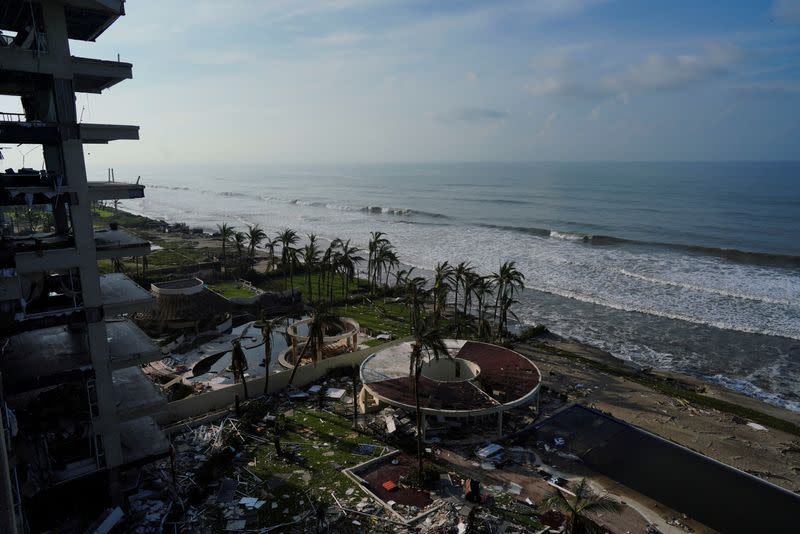After hurricane, Mexican president urges insurers to hurry payouts
- Oops!Something went wrong.Please try again later.
MEXICO CITY (Reuters) - Mexican President Andres Manuel Lopez Obrador on Friday urged insurance companies to speed up payouts after powerful Hurricane Otis wreaked havoc on Acapulco's beach resorts and surrounding impoverished communities.
The storm intensified with unexpected speed just prior to making landfall on Wednesday, becoming the most powerful storm to ever strike Mexico's Pacific coast.
In Acapulco, Otis claimed at least 27 lives according to the local governor's tally issued on Thursday, which has not been updated. It has also caused widespread destruction and billions of dollars in damages.
"We're going to talk to the insurers so that they do not delay the procedures, so that they act soon," Lopez Obrador said during his morning press conference while pledging other forms of assistance.
"For those who do not have insurance, we are going to find a way (for them) to benefit from cheap loans, both from commercial banks and development banks."
Consultancy CoreLogic wrote in a research note on Thursday that insurable damage to buildings from Otis' winds alone could reach $15 billion, adding that in Mexico insurance coverage tends to be limited to hotels and resorts.
Mexico will likely receive a payout of some $62.5 million from a catastrophe bond that insures the country against earthquakes and hurricanes, Plenum Investments estimated.
The investment manager calculated "a high probability" Mexico will get half of the bond's $125-million payment earmarked towards Pacific hurricanes.
In 2020, the World Bank issued four tranches of catastrophe bonds for the country's natural disaster fund, FONDEN, to insure against earthquakes and hurricanes for four years.
Bond documents showed Mexico had paid an undisclosed insurance premium for $485 million worth of coverage, which the World Bank transferred to 38 catastrophe bond investors.
(Reporting by Stefanie Eschenbacher; Editing by David Alire Garcia and Rod Nickel)


